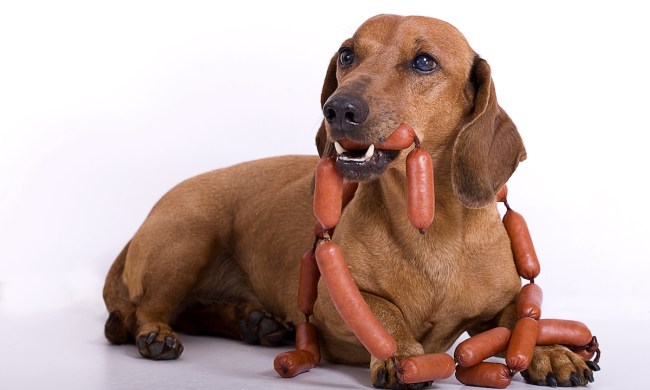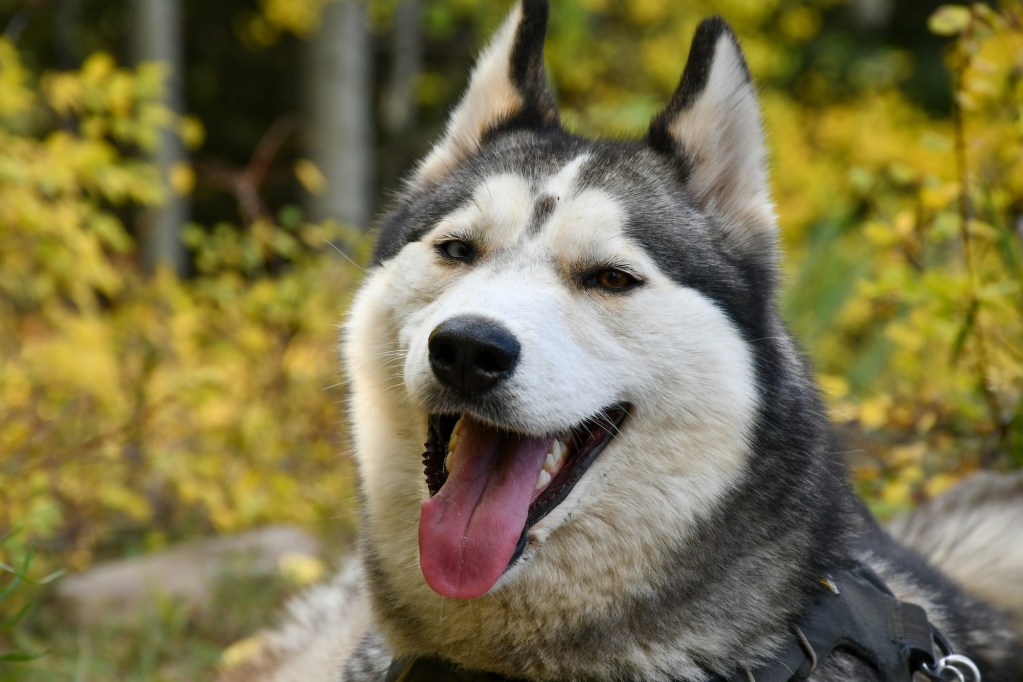
Whether you’re considering bringing home a Siberian husky or you’re just a fan of this majestic breed, it’s important to educate yourself about all aspects of their life, including their health. After all, no dog is invincible when it comes to injury and illness. Even though no one can completely predict what a dog’s health will look like in the future, a dog’s breed can make them more predisposed to certain conditions. A little bit of knowledge can help owners choose which preventative measures they may want to take, and it can ultimately help keep a dog healthy in the long run.
Huskies may be known as a noisy and athletic Northern breed, but even they are predisposed to a few health concerns. These are the kinds of symptoms husky owners should keep an eye out for because when you know what to look for, you’re much more likely to catch it early when it’s treatable.
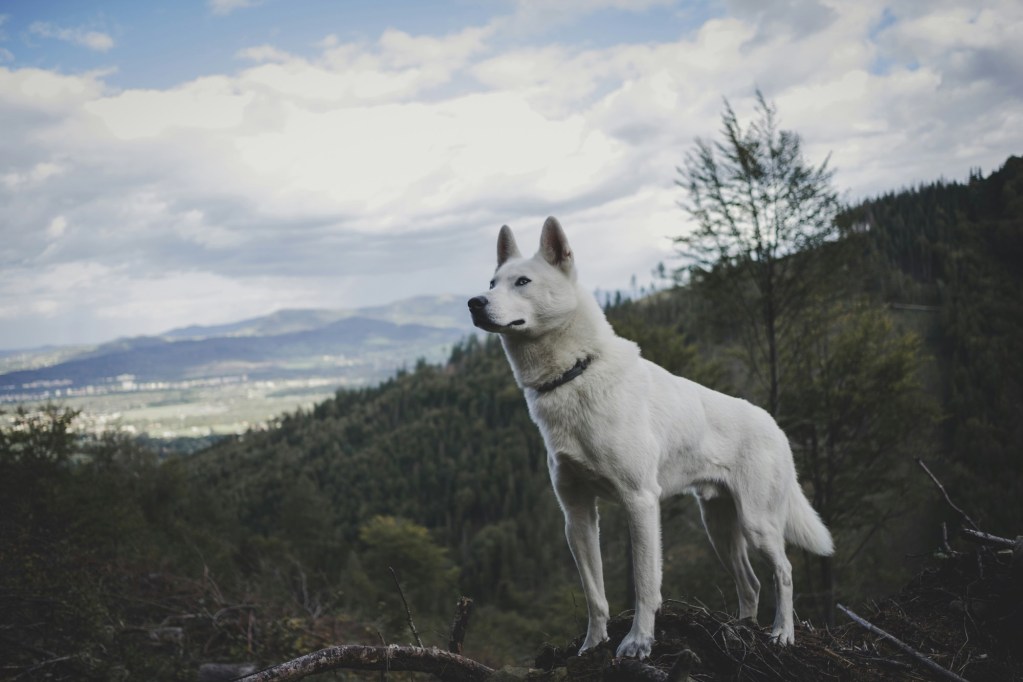
Cataracts
Some health problems, like cataracts, can potentially be eliminated from the breed by the use of responsible breeding only. Cataracts are thought to be genetic, meaning that a dog has the chance of developing them if one or both of their parents also did, though they can sometimes be corrected via surgery. Huskies with blue eyes may be more likely to develop cataracts.
This condition occurs when the lens of the eye begins to harden, limiting vision and creating a milky white appearance on the surface of the eye. Cataracts can range in severity from inconvenient to blinding, and no two dogs’ cataracts will progress at the same rate. Huskies with this genetic condition can begin to experience vision loss as young as 3 months old, according to Tiffany Paul, DVM, but a visit to the veterinarian can help owners determine the best course of action moving forward.
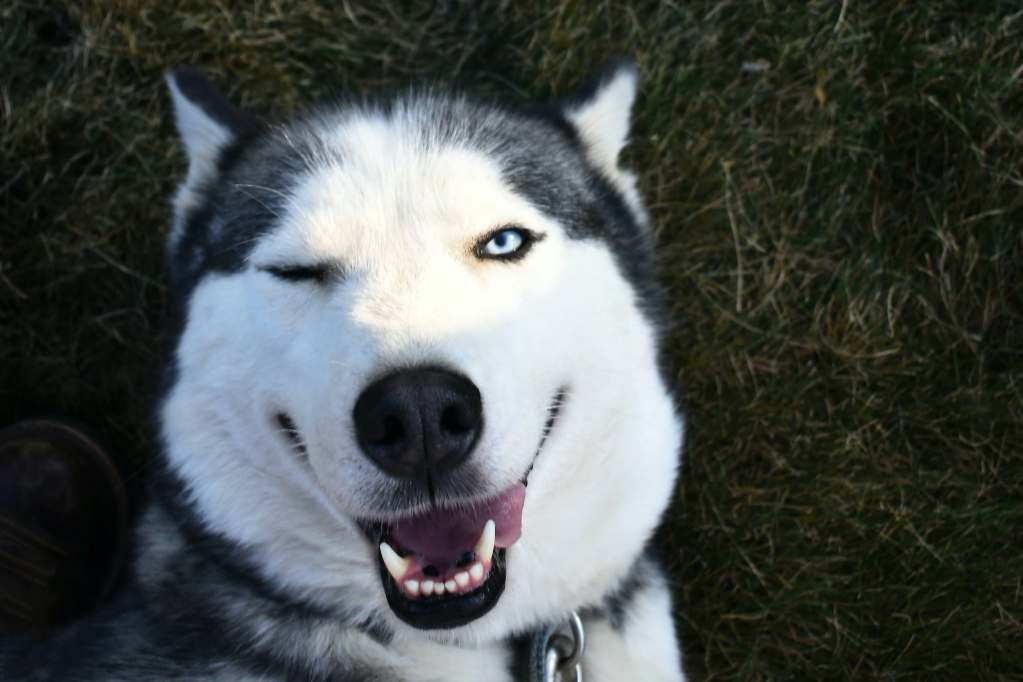
Progressive retinal atrophy
This is the name for a group of genetic disorders that affect the eyes, starting with night blindness and difficulty seeing in low light. Progressive Retinal Atrophy (or PRA) typically results in blindness within one to two years of when the symptoms begin, notes veterinarian Jamie Case, and there is currently no known cure. Some dogs’ disease will progress faster than others, of course, but it occurs when the eye’s retina begins to weaken. This can happen shortly after birth or later in life, but both early-onset and late-onset variations are thought to be “sex-linked” and more common in male huskies.
Cataracts can actually be a symptom of PRA, but any sign of vision changes in your husky should warrant a visit to the veterinarian. Remember- that eye care for dogs is important, too!
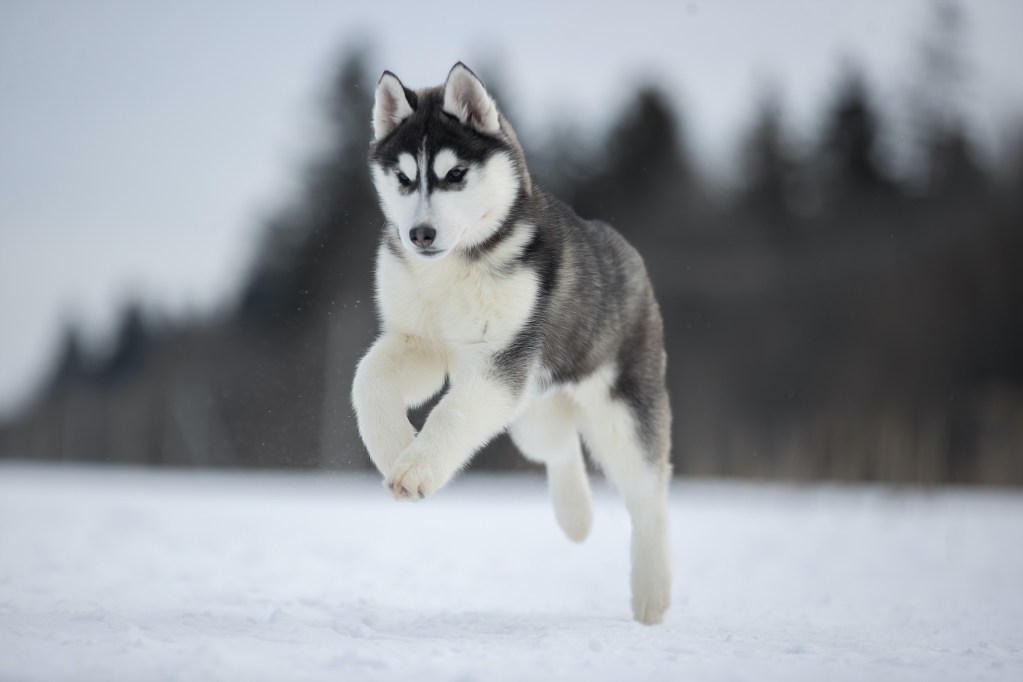
Hip dysplasia and arthritis
Like many larger dog breeds, Siberian huskies can be prone to joint issues like arthritis and hip dysplasia. A dog’s activity level throughout life does not necessarily affect their likelihood of developing these disorders, though keeping your husky at a healthy weight can reduce unnecessary stress on their joints as they age.
Hip dysplasia occurs when a dog’s hip joint doesn’t properly develop, resulting in a loose, weak joint. Dogs with hip dysplasia may struggle with mobility, such as sitting down, standing up, or even going to the bathroom. In more severe cases, you might see your dog’s back legs collapse. The Siberian Husky Club of America recommends that all huskies receive a hip evaluation from a licensed veterinarian to help owners identify any potential problems while the dog is young.
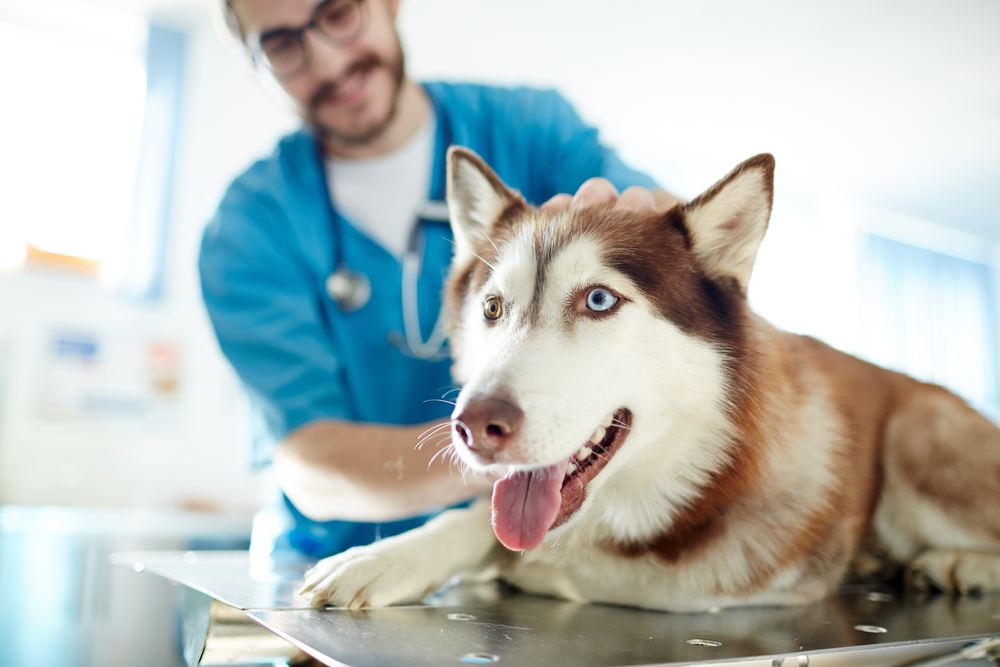
Urinary stones
The University of Minnesota College of Veterinary Medicine discovered that Siberian huskies are more likely to develop urinary stones, and it even identified the gene behind this disorder. Because of a mutation in a “uric acid transporter gene” called SLC2A9, some dogs may develop higher concentrations of uric acid in their urine. This combination results in urinary stones, which may appear as blood in the urine or difficulty urinating.
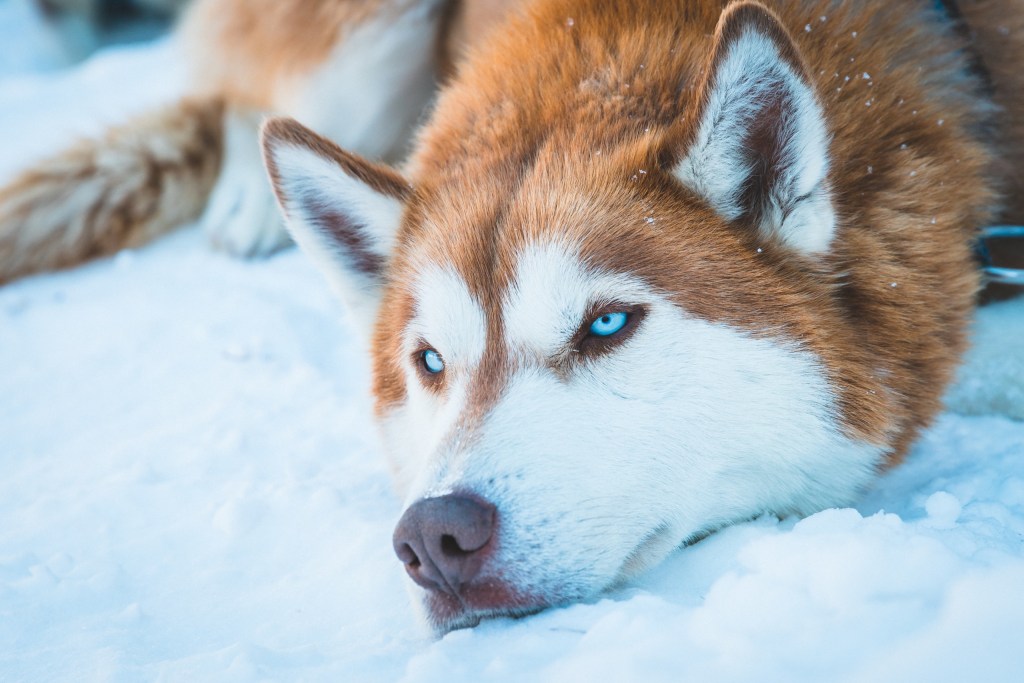
Neurological disorders
That same College of Veterinary Medicine at the University of Minnesota found that Siberian huskies, like several other dog breeds, can be at risk for neurological disorders at birth. While any dog has the potential to develop Shaking Puppy Syndrome (the name given to this group of disorders), researchers have found the gene responsible for huskies’ slight predisposition to Shaking Puppy Syndrome, Type 1.
This is a genetic complication that can occur because of random mutations or irresponsible breeding, and it’s only one reason why all potential breeding dogs should be genetically tested beforehand. Sadly, Shaking Puppy Syndrome, Type 1, often results in sudden death at a young age, so there are plenty of reasons to test for this before breeding.
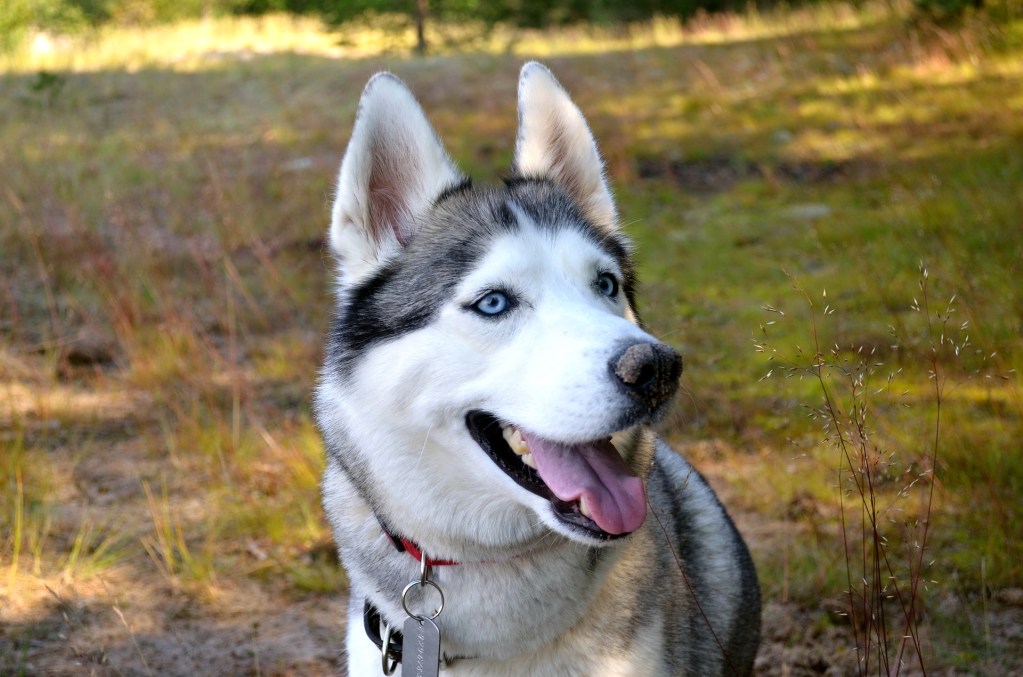
Hypothyroidism
Hypothyroidism happens when a dog’s thyroid produces less of its thyroid hormone than it’s supposed to. This slows down a dog’s metabolism, according to PetMD, and can result in a number of subtle yet certain symptoms.
This endocrine disease is not unique to Siberian huskies, though, but it’s more commonly seen in medium and large breeds. Many dogs develop it around middle age, and it usually results in weight gain, hair loss, reduced activity, and a course fur texture. Hypothyroidism can be treated, so don’t hesitate to call your dog’s vet if you notice any change in their normal appearance, activity, or behavior.
Even though Siberian huskies are predisposed to these canine health concerns, it doesn’t mean that every husky is going to develop them. In reality, many Siberian huskies live long, healthy, and happy lives thanks to regular veterinary visits and consistent care. Keeping these concerns in mind is all you need to do if you have (or want to have) a husky because your watchful eye could catch a problem before it becomes severe.

